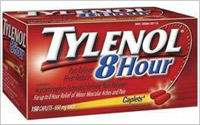Agency-Client Conflicts Become Less Of A Headache
- by Steve McClellan @mp_mcclellan, October 12, 2012

Are client conflicts becoming a non-issue for marketers when they select agencies?
Pivotal Research senior analyst Brian Wieser in a just-issued report
lays out a case that clients care less about conflicts than in the past. It's part of the reason he believes the advertising industry will undergo further consolidation.
Wieser cites the
recent ad agency review conducted by healthcare products and pharmaceutical giant Johnson & Johnson. The company awarded WPP’s JWT creative duties for its Tylenol line of pain relievers,
despite the fact that JWT sibling agency Grey handles work for competitor Advil. J&J awarded Omnicom’s DDB creative chores for its line of Stayfree feminine care products, while competing
roster shop Ogilvy & Mather handles similar products for Kimberly-Clark.
The paring back of roster agencies by big multi-brand marketers “is an increasingly common choice given
the challenges [and costs] that marketers’ centralized marketing groups face in managing multiple relationships," said Wieser.
advertisement
advertisement
That view is supported by a separate report that was
unveiled earlier this week by consultant Avidan Strategies. In its survey, Avidan found that about half of the marketers polled indicated that they have been reducing their rosters over the past three
years. Some 44% said their rosters are still too big and they plan to consolidate further.
According to Wieser, the shifts at J&J “provide further evidence that the notion of the
conflict is becoming increasingly obsolete." Better agency portfolio management by the holding companies has helped, he said. They have also sold marketers on the idea that "competitive concerns can
be managed away." Marketers are more focused on broader business results and are adjusting conflict policies.
Last year’s S.C. Johnson media review also supports the view that
conflicts are of less concern now than in the past, Wieser said. The household products company once had one of the strictest client conflict policies in the industry. But by consolidating with
WPP’s Maxus, that policy has clearly eased up. WPP agencies now work with competitors such as Unilever.
Concludes Wieser: “The industry has evolved significantly over the past
decade, and we believe there are now few large marketers that would choose not to work with a holding company solely because one of the holding company's divisions also works with a direct
competitor.”


